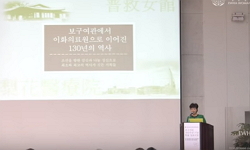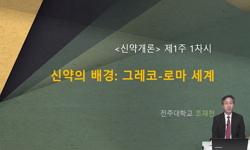This study examines processes of acceptances and distributions of Western sciences throughout the New Culture Movement which Chinese studying-abroad-group propelled during the May Fourth Movement period. In the period of transition from Qing dynasty t...
http://chineseinput.net/에서 pinyin(병음)방식으로 중국어를 변환할 수 있습니다.
변환된 중국어를 복사하여 사용하시면 됩니다.
- 中文 을 입력하시려면 zhongwen을 입력하시고 space를누르시면됩니다.
- 北京 을 입력하시려면 beijing을 입력하시고 space를 누르시면 됩니다.

5·4운동기 해외유학파의 서양학문 수용과 유통-신문학을 중심으로- = How Did Chinese Studying-Abroad-Group Accept and Distribute Western Sciences during the May Fourth Movement Period? - Focusing on New Literature -
한글로보기https://www.riss.kr/link?id=A106005495
- 저자
- 발행기관
- 학술지명
- 권호사항
-
발행연도
2018
-
작성언어
-
-
주제어
유학파 ; 서양학문 ; 신문화운동 ; 신문학 ; 문학혁명 ; 新靑年 ; 胡適 ; 陳獨秀 ; 魯迅 ; studying-abroad-group ; Western science ; New Culture Movement ; new literature ; literary revolution ; new youngsters ; Hu Shih ; Chen Duxiu ; Lu Xun
-
KDC
900
-
등재정보
KCI등재
-
자료형태
학술저널
- 발행기관 URL
-
수록면
25-48(24쪽)
-
KCI 피인용횟수
0
- 제공처
- 소장기관
-
0
상세조회 -
0
다운로드
부가정보
다국어 초록 (Multilingual Abstract)
Translations and writings in accordance with New Literature focused on ‘humanist literature’ based on humanitarianism and on ‘realist literature’ describing all social events as they are, and emphasized liberating personality and individualism. The trend of New Literature, based on enlightenment, revolution and reality, went toward liberty and equality of all individuals and liberating personality. Indeed, the literary revolution not only achieved changes in contents, formalities, expressions, and genres, but also led the ideological revolution changing Chinese people’s morality, value system, and material civilization as a whole. From this perspective, the Western literature accepted by Chinese studying-abroad-group was the bridgehead to the modern sciences and thoughts and the key motivation bursting the literary revolution and spreading the New Culture Movement and the May Fourth Movement. Throughout the process, the concepts of liberty, equality, democracy, science, and so on, which were transplanted from the West, became common in Chinese society and became the axis of modern knowledges.
This study examines processes of acceptances and distributions of Western sciences throughout the New Culture Movement which Chinese studying-abroad-group propelled during the May Fourth Movement period. In the period of transition from Qing dynasty to the republic, intellectuals who learned modern sciences and experienced Western civilization through studying abroad brought up the New Culture Movement as a breakthrough for Chinese society disappointed after the Xinhai Revolution. The most rapid and specific one among several sub-movements was the literary revolution, which focused on building the literature of ordinary people through ideological revolution and writing revolution liberating from harms of feudal literature. For the literary revolution, its tool was baihuawen(白話文: plain speech writing) and its method was translating and referring Western classics. Those selected Western classics were neither for literary value nor for entertainment but for enlightenment and revolution urging Chinese people’s awakening.
Translations and writings in accordance with New Literature focused on ‘humanist literature’ based on humanitarianism and on ‘realist literature’ describing all social events as they are, and emphasized liberating personality and individualism. The trend of New Literature, based on enlightenment, revolution and reality, went toward liberty and equality of all individuals and liberating personality. Indeed, the literary revolution not only achieved changes in contents, formalities, expressions, and genres, but also led the ideological revolution changing Chinese people’s morality, value system, and material civilization as a whole. From this perspective, the Western literature accepted by Chinese studying-abroad-group was the bridgehead to the modern sciences and thoughts and the key motivation bursting the literary revolution and spreading the New Culture Movement and the May Fourth Movement. Throughout the process, the concepts of liberty, equality, democracy, science, and so on, which were transplanted from the West, became common in Chinese society and became the axis of modern knowledges.
참고문헌 (Reference)
1 李喜所, "留美生與中國歷史學" 南開大學出版社 2009
2 "魯迅全集"
3 첸강·후징조, "청나라 정부의 조기유학 프로젝트 유미유동" 시니북스 2005
4 후궈수, "차이위안페이평전" 김영사 2009
5 이택후, "중국현대사상사의 굴절" 지식산업사 1992
6 홍석표, "중국현대문학사" 이화여자대학교출판부 2009
7 한국중국현대문학학회, "중국현대문학과의 만남" 동녘 2006
8 정진배, "중국현대문학과 현대성 이데올로기" 문학과 지성사 2001
9 홍석표, "중국의 근대적 문학의식 탄생" 선학사 2007
10 홍석표, "중국 근대학문의 형성과 학술문화담론" 북코리아 2012
1 李喜所, "留美生與中國歷史學" 南開大學出版社 2009
2 "魯迅全集"
3 첸강·후징조, "청나라 정부의 조기유학 프로젝트 유미유동" 시니북스 2005
4 후궈수, "차이위안페이평전" 김영사 2009
5 이택후, "중국현대사상사의 굴절" 지식산업사 1992
6 홍석표, "중국현대문학사" 이화여자대학교출판부 2009
7 한국중국현대문학학회, "중국현대문학과의 만남" 동녘 2006
8 정진배, "중국현대문학과 현대성 이데올로기" 문학과 지성사 2001
9 홍석표, "중국의 근대적 문학의식 탄생" 선학사 2007
10 홍석표, "중국 근대학문의 형성과 학술문화담론" 북코리아 2012
11 천두슈·후스, "신청년의 신문학론" 한길사 2012
12 최소자, "동서문화교류사연구:명청대 서학수용" 삼영사 1987
13 이매뉴얼 C. Y. 쉬, "근-현대중국사-인민의 탄생과 굴기 하" 까치 2013
14 양일모, "근대 중국의 서양 학문 수용과 번역" 한국철학사상연구회 15 (15): 119-152, 2004
15 莊森, "飛揚跋扈爲誰雄:作爲文學社團的新靑年社硏究" 東方出版社 2006
16 陳獨秀, "陳獨秀著作選" 上海人民出版社 1993
17 張海林, "近代中外文化交流史" 南京大學出版社 2003
18 容閎, "西學東漸記" 湖南人民出版社 1981
19 熊月之, "西學東漸與晩淸社會" 上海人民出版社 1994
20 姜義華, "胡適學術文集 新文學運動" 中華書局 1993
21 梁啓超, "淸代學術槪論" 東方出版社 1996
22 "東明"
23 "新靑年(靑年雜誌)"
24 張耀杰, "北大敎授與≪新靑年≫" 新星出版社 2014
25 郭湛波, "前五十年中國思想史" 香港 1965
26 沈福偉, "中西文化交流史" 上海人民出版社 2006
27 李喜所, "中國留學通史 民國卷" 廣東敎育出版社 2010
28 민두기, "中國에서의 自由主義의 實驗-胡適(1891~1962)의 思想과 活動" 지식산업사 1997
29 陳學恂, "中國近代敎育史料滙編 留學敎育" 上海敎育出版社 2007
30 馬以鑫, "中國現代文學接受史" 華東師範大學出版社 1998
31 謝筠, "中國現代文學史敎程" 中國傳媒大學出版社 2003
32 胡適, "中國新文學大系·建設理論集·總論" 上海文藝出版社 1936
33 周作人, "中國新文學大系, 建設理論集" 上海文藝出版社 1936
34 劉綬, "中國新文學史初稿 上·下卷" 人民文學出版社 1985
35 巴平, "中國散文鑒賞文庫 現代卷" 百花文藝出版社 1990
36 章開沅, "中國人留學史, 上冊" 社會科學文獻出版社 2013
37 김창규, "『新靑年』의 신문학운동과 중국의 근대성" 호남사학회 (59) : 197-229, 2015
38 Tse-tsung Chow, "May Fourth Movement; Intellectual Revolution in Modern China" 1960
동일학술지(권/호) 다른 논문
-
국내 중한사전 작업의 새로운 모색 및 활용 방안 -『다락원 중한사전』의 편찬을 중심으로-
- 단국대학교 동양학연구원
- 김현철
- 2018
- KCI등재
-
- 단국대학교 동양학연구원
- 한재기
- 2018
- KCI등재
-
- 단국대학교 동양학연구원
- 심경호
- 2018
- KCI등재
-
- 단국대학교 동양학연구원
- 완문강 ( Nguyen Van Khang )
- 2018
- KCI등재
분석정보
인용정보 인용지수 설명보기
학술지 이력
| 연월일 | 이력구분 | 이력상세 | 등재구분 |
|---|---|---|---|
| 2027 | 평가예정 | 재인증평가 신청대상 (재인증) | |
| 2021-01-01 | 평가 | 등재학술지 유지 (재인증) |  |
| 2018-01-01 | 평가 | 등재학술지 유지 (등재유지) |  |
| 2015-01-01 | 평가 | 등재학술지 유지 (등재유지) |  |
| 2013-06-12 | 학술지명변경 | 외국어명 : 미등록 -> The Oriental Studies |  |
| 2013-03-13 | 학회명변경 | 한글명 : 동양학연구소 -> 동양학연구원영문명 : Dankook University Institute of Oriental Studies -> Academy of Asian Studies, Dankook University |  |
| 2011-01-01 | 평가 | 등재학술지 유지 (등재유지) |  |
| 2009-01-01 | 평가 | 등재학술지 유지 (등재유지) |  |
| 2007-01-01 | 평가 | 등재학술지 유지 (등재유지) |  |
| 2004-01-01 | 평가 | 등재학술지 선정 (등재후보2차) |  |
| 2003-01-01 | 평가 | 등재후보 1차 PASS (등재후보1차) |  |
| 2001-07-01 | 평가 | 등재후보학술지 선정 (신규평가) |  |
학술지 인용정보
| 기준연도 | WOS-KCI 통합IF(2년) | KCIF(2년) | KCIF(3년) |
|---|---|---|---|
| 2016 | 0.7 | 0.7 | 0.68 |
| KCIF(4년) | KCIF(5년) | 중심성지수(3년) | 즉시성지수 |
| 0.64 | 0.63 | 1.457 | 0.16 |




 KCI
KCI KISS
KISS




